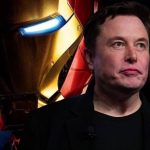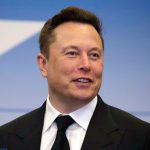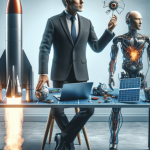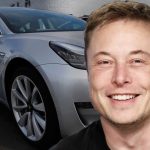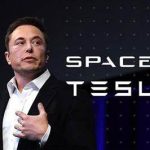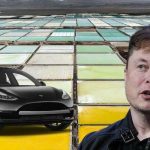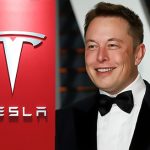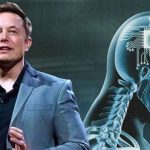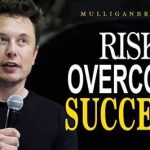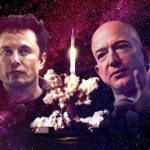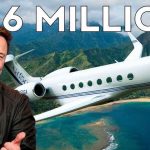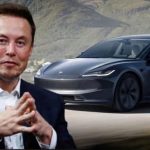Elon Musk: A Role Model for 21st-Century Entrepreneurs 🚀✨

Elon Musk: A Role Model for 21st-Century Entrepreneurs 🚀✨
Elon Musk—billionaire, innovator, and visionary—isn’t just an entrepreneur; he’s a phenomenon who’s rewritten the rulebook for what it means to build a legacy in the modern age. From revolutionizing transportation with Tesla’s electric vehicles to hurling humanity toward the stars with SpaceX, Musk’s journey is a masterclass in ambition, resilience, and sheer audacity. His name is synonymous with pushing boundaries, whether it’s colonizing Mars or reimagining energy on Earth. But what is it about Musk that sets him apart as one of the world’s most successful and inspiring entrepreneurs? Let’s dive into the unique qualities that make him a beacon for 21st-century dreamers and doers—traits that don’t just define his success but light the way for others to follow! 🔍
1. Vision Beyond the Horizon 🌍
Elon Musk doesn’t just solve today’s problems—he dreams up futures that most can’t even fathom. His ventures aren’t about incremental gains; they’re about rewriting the destiny of humanity itself. Take SpaceX: Musk isn’t content with launching satellites or ferrying astronauts to the International Space Station—he’s aiming to make humans a multi-planetary species, with a self-sustaining colony on Mars targeted for 2031. Or consider Tesla, where his mission isn’t just to sell electric cars but to combat climate change by accelerating the world’s shift to sustainable energy. These aren’t small goals; they’re world-altering missions that stretch decades into the future.
This visionary streak goes back to his early days. Born in Pretoria, South Africa, in 1971, Musk was a kid who devoured sci-fi novels like The Hitchhiker’s Guide to the Galaxy and imagined possibilities beyond Earth’s limits. That imagination became reality when he founded SpaceX in 2002 with a then-outlandish goal: reduce space travel costs tenfold and colonize Mars. Critics laughed—until SpaceX’s Falcon 1 became the first privately funded rocket to reach orbit in 2008. Today, with Starship poised to carry humans to the Red Planet, Musk’s foresight feels less like fantasy and more like prophecy.
His optimism is infectious. “I’d rather be optimistic and wrong than pessimistic and right,” he once said, a mantra that fuels his empire. Whether it’s envisioning a Hyperloop to shrink travel times or a global network of Starlink satellites to connect the unconnected, Musk thinks in epochs, not quarters. This ability to see beyond the horizon doesn’t just inspire industries—it galvanizes entrepreneurs to dream bigger, to chase what’s possible rather than settle for what’s practical. 🌟
2. Relentless Work Ethic 💪
Musk’s work ethic is the stuff of legend, a relentless drive that turns vision into reality. He’s famous for clocking 80-to-100-hour workweeks—sometimes more—pouring every ounce of himself into his companies. During Tesla’s Model 3 production crisis in 2018, he slept on the factory floor, tweaking assembly lines at 3 a.m. to keep the company afloat. At SpaceX, he’s been known to pull all-nighters before launches, micromanaging details down to the last bolt. This isn’t just hustle for hustle’s sake—it’s a commitment to perfection, a refusal to let anything less than excellence slide.
A recent example came with Starship Flight 8 in March 2025. After a booster catch attempt failed due to a last-second glitch, Musk didn’t retreat to lick his wounds. Instead, he doubled down, rallying his team for round-the-clock diagnostics and tweeting, “Failure is how we learn” (@elonmusk, March 7, 2025). Within weeks, SpaceX was back at it, prepping for Flight 9 with tweaks informed by that very setback. This grit—turning obstacles into stepping stones—isn’t just inspiring; it’s a blueprint for entrepreneurs facing their own crunch times.
Musk’s stamina stems from a deeper ethos: if he’s not all in, the mission fails. He’s said he works so hard because “the alternative is unacceptable”—a mindset forged through near-misses like Tesla’s 2008 cash crunch or SpaceX’s early rocket explosions. For Musk, every hour is a chance to push the needle forward, a lesson in dedication that resonates with anyone building something from scratch. 🛠️
3. Fearless Risk-Taking 🎲
Few entrepreneurs would bet their entire fortune on unproven ideas, but Musk has made a career of it—and won. After selling PayPal (then X.com) for $165 million in 2002, he could’ve retired to a life of luxury. Instead, he funneled nearly every penny—over $100 million—into SpaceX and Tesla, two startups with sky-high dreams and razor-thin odds. In 2008, both teetered on the brink of bankruptcy: Tesla couldn’t deliver its Roadster, and SpaceX’s first three launches ended in fiery failures. Most would’ve cut their losses. Musk chose to fight.
He took out personal loans, begged investors, and even borrowed from friends to keep the lights on. That gamble paid off spectacularly. SpaceX’s fourth launch succeeded, landing a NASA contract that saved the company, while Tesla clawed its way to profitability. Fast forward to March 2025: Tesla’s market cap tops $1 trillion, and SpaceX is valued at $350 billion (Forbes), launching more rockets annually than most countries. Musk thrives where others hesitate, turning near-disasters into triumphs.
This fearless risk-taking isn’t reckless—it’s calculated. Musk weighs the odds, then bets big when he believes the payoff could change the world. His ventures—like Neuralink’s brain-computer interfaces or The Boring Company’s traffic tunnels—start as long shots, but his track record proves he’s not afraid to roll the dice. For 21st-century entrepreneurs, Musk’s example is clear: fortune favors the bold, and playing it safe rarely rewrites history. 🔥
4. Adaptability and Innovation 🧠
Musk isn’t wedded to one playbook—he’s a master of reinvention, pivoting fast to seize new opportunities. Look at Tesla: it started as a car company but evolved into an energy empire with solar panels, Powerwalls, and the Optimus robot, unveiled in 2022 and now integrating AI for real-world tasks by 2025. SpaceX shifted from satellite launches to Mars missions, adapting its reusable rocket tech to slash costs and scale ambitions. When Musk joined DOGE (Department of Government Efficiency) in 2024, he applied that same ingenuity, slashing $100 billion from U.S. spending by March 2025 through streamlined processes and tech-driven audits.
He’s a tinkerer at heart, always iterating. Early Tesla Roadsters had battery woes; Musk’s team fixed them. SpaceX’s Falcon 1 flopped; he redesigned it into the Falcon 9. Even his X platform evolves—once Twitter, now a hub for unfiltered discourse and real-time updates on his ventures. This adaptability isn’t just about survival—it’s about staying ahead of the curve, anticipating needs before they arise. Musk’s ability to pivot, innovate, and apply his problem-solving across industries—from cars to government—makes him a model for entrepreneurs navigating a fast-changing world. 🔧
5. Unapologetic Authenticity 💬
Love him or hate him, Elon Musk is unapologetically himself—raw, quirky, and unfiltered in a way few CEOs dare to be. His X posts are a rollercoaster: one minute he’s sharing memes about Dogecoin, the next he’s dropping Mars mission updates or sparring with critics. In March 2025, he tweeted a photo of Starship’s wreckage with, “Oops, guess we’ll try again!” (@elonmusk, March 8, 2025), turning a failure into a moment of levity. He’s not a polished exec reading from a PR script—he’s a geek who geeks out over engineering, cracks dad jokes, and isn’t afraid to ruffle feathers.
This authenticity builds a rare connection. With 208 million X followers (as of March 2025), Musk speaks directly to fans, employees, and dreamers, bypassing traditional media. When Tesla hit a production snag in 2024, he didn’t hide—he posted a video from the factory floor, rallying support. His openness—admitting flops, celebrating wins—humanizes a billionaire often seen as larger-than-life. It’s why Tesla workers cheer him on, why SpaceX engineers work grueling hours, why fans defend him fiercely online. Musk’s realness isn’t just a quirk—it’s a leadership superpower that inspires loyalty and trust. 😎
Why He Inspires
Elon Musk isn’t perfect, and that’s part of his appeal. His infamous “Elon Time”—overly optimistic deadlines like Tesla’s Full Self-Driving by 2018 or Mars by 2024—often slips, drawing eye-rolls. Controversies, like DOGE’s job cuts sparking protests in 2025, prove he’s not immune to backlash. Yet, his blend of vision, tenacity, and ingenuity outweighs the flaws, making him a 21st-century icon. He’s not chasing profit for profit’s sake—he’s pushing humanity forward, whether it’s cleaner energy, space exploration, or AI breakthroughs.
Musk shows entrepreneurs that success isn’t about avoiding failure—it’s about daring greatly, learning from the wreckage, and pressing on. His story is a rallying cry: think big, work hard, take risks, adapt fast, and stay true to yourself. He’s proof that one person, armed with grit and imagination, can shift the world’s trajectory. From a kid in Pretoria dreaming of stars to a titan shaping the future, Musk’s journey inspires anyone bold enough to chase their own impossible.
What quality of Musk lights a fire under you? His cosmic vision? His tireless hustle? His fearless bets? His quirky charm? Drop your thoughts below—I’d love to hear what fuels your entrepreneurial spirit! 🌈
